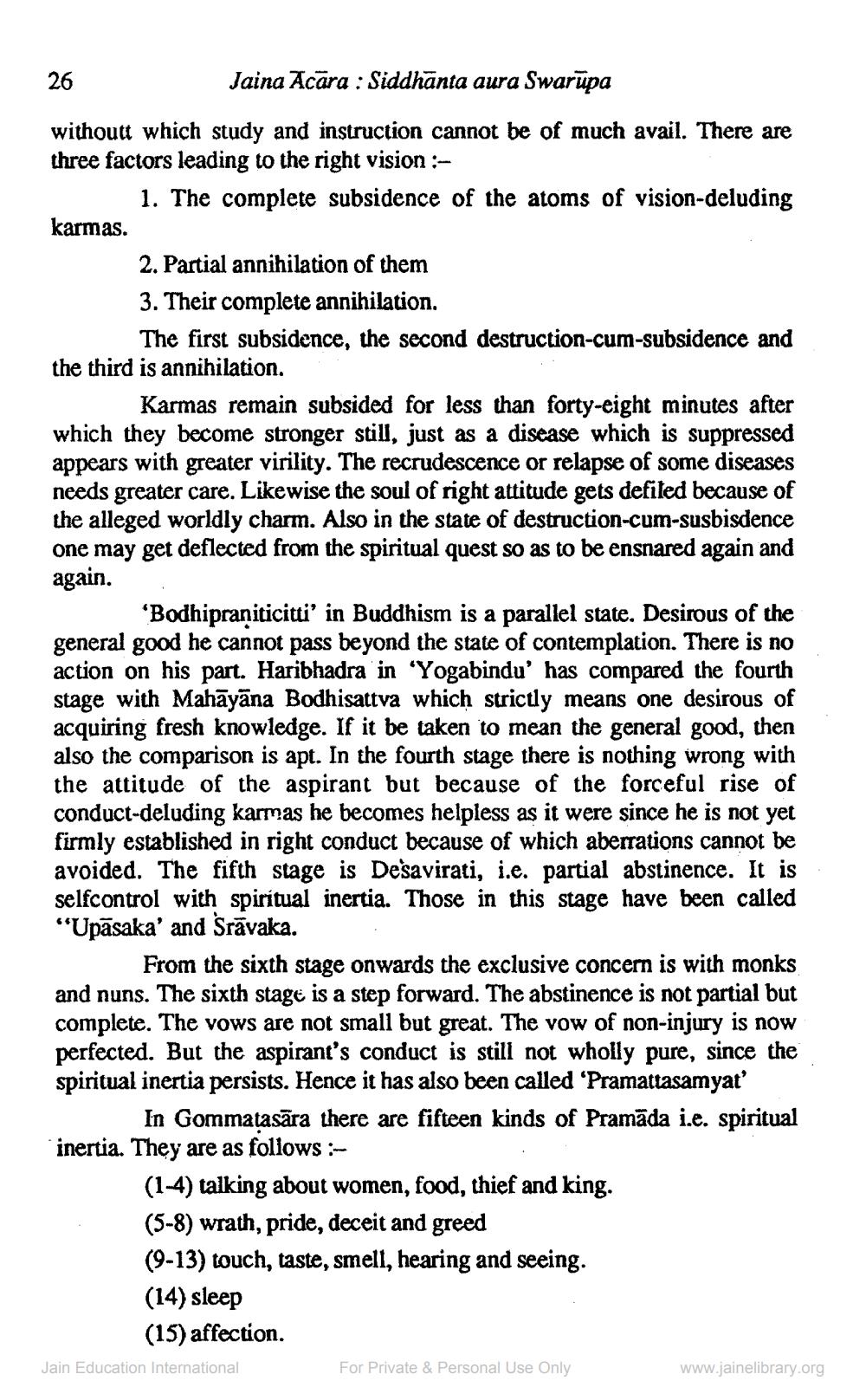________________
Jaina Acara: Siddhanta aura Swarupa
withoutt which study and instruction cannot be of much avail. There are three factors leading to the right vision:
1. The complete subsidence of the atoms of vision-deluding
26
karmas.
2. Partial annihilation of them
3. Their complete annihilation.
The first subsidence, the second destruction-cum-subsidence and the third is annihilation.
Karmas remain subsided for less than forty-eight minutes after which they become stronger still, just as a disease which is suppressed appears with greater virility. The recrudescence or relapse of some diseases needs greater care. Likewise the soul of right attitude gets defiled because of the alleged worldly charm. Also in the state of destruction-cum-susbisdence one may get deflected from the spiritual quest so as to be ensnared again and again.
'Bodhipraniticitti' in Buddhism is a parallel state. Desirous of the general good he cannot pass beyond the state of contemplation. There is no action on his part. Haribhadra in "Yogabindu' has compared the fourth stage with Mahāyāna Bodhisattva which strictly means one desirous of acquiring fresh knowledge. If it be taken to mean the general good, then also the comparison is apt. In the fourth stage there is nothing wrong with the attitude of the aspirant but because of the forceful rise of conduct-deluding karmas he becomes helpless as it were since he is not yet firmly established in right conduct because of which aberrations cannot be avoided. The fifth stage is Desavirati, i.e. partial abstinence. It is selfcontrol with spiritual inertia. Those in this stage have been called "Upāsaka' and Srāvaka.
From the sixth stage onwards the exclusive concern is with monks and nuns. The sixth stage is a step forward. The abstinence is not partial but complete. The vows are not small but great. The vow of non-injury is now perfected. But the aspirant's conduct is still not wholly pure, since the spiritual inertia persists. Hence it has also been called 'Pramattasamyat'
In Gommatasära there are fifteen kinds of Pramada i.e. spiritual inertia. They are as follows:
(1-4) talking about women, food, thief and king.
(5-8) wrath, pride, deceit and greed
(9-13) touch, taste, smell, hearing and seeing.
(14) sleep
(15) affection.
Jain Education International
For Private & Personal Use Only
www.jainelibrary.org




